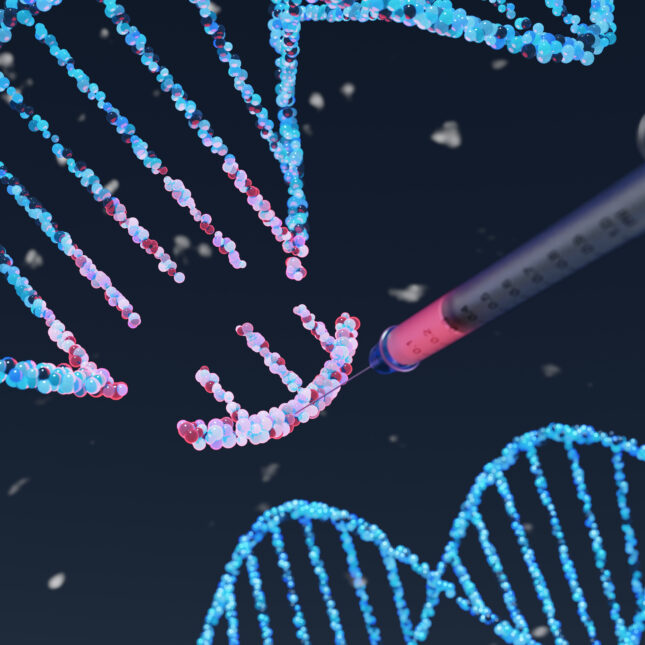
Two congenitally deaf children can hear for the first time after being treated with gene therapy, according to data presented at a conference Wednesday.
The results are “jaw-droppingly good, just shocking how good. It exceeded the wildest expectations of anybody who started this work,” said Larry Lustig, an otolaryngologist at Columbia University and an investigator on the study.
The new data come from a larger study by Regeneron Pharmaceuticals that will treat nearly two dozen children with a specific type of congenital hearing loss with gene therapy. The clinical trial is meant to measure safety and efficacy of DB-OTO, a gene therapy drug Regeneron is developing to treat children who have hearing loss due to changes in the otoferlin gene. Several teams are targeting this rare form of congenital deafness that affects 1% to 8% of deaf people globally, including a team with Akouos, an Eli Lilly subsidiary, which successfully treated an 11-year-old boy with a similar gene therapy. Lustig calls this the “lowest of the low-hanging fruit” for gene therapy deafness treatments.

This article is exclusive to STAT+ subscribers
Unlock this article — plus daily coverage and analysis of the biotech sector — by subscribing to STAT+.
Already have an account? Log in
Already have an account? Log in
To submit a correction request, please visit our Contact Us page.











STAT encourages you to share your voice. We welcome your commentary, criticism, and expertise on our subscriber-only platform, STAT+ Connect